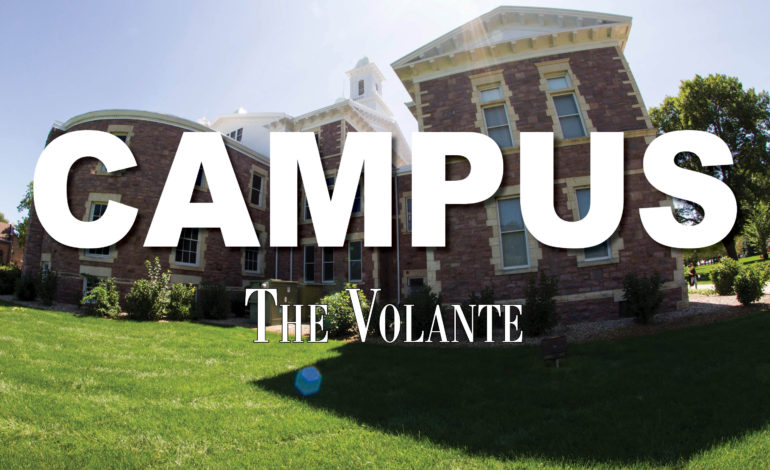
How USD handles classes cancelled for low enrollment
When classes at USD get cancelled due to low enrollment, the academic deans at USD try to help students navigate through these issues.
Beth Freeburg, Associate Provost and Graduate Dean, said USD operates under a 4/7/10 policy, which is a South Dakota Board of Regents rule. Under this rule, undergraduate classes — level 100, 200, 300 and 400 — need a minimum of 10 students. Masters level classes — 500, 600 — must have at least seven students. Doctorate level classes— 700 and 800 — need at least four students.
4% of the total sections on campus can have exceptions, Freeburg said. She has been part of this process for the last four years.
New programs will receive exceptions because, Freeburg said, those programs need more time to draw the interest of a larger number of students. Programs might also receive exceptions if they’re tied to USD’s mission on campus. She estimates 27 classes is the maximum number to receive exceptions each semester.
Sometimes students can move into a different section if their schedule allows them. One of the biggest challenges, Freeburg said, is determining the right number of sections for a class.
“Our students are who we’re all here to help,” Freeburg said. “Everything that we do here is thinking about our students and trying to get them through so that they can get to the career position that they want some day.”
John Dudley, Associate Dean of the College of Arts and Sciences, is responsible for classroom-related duties. He said it’s rare for an entire class to be cancelled a few weeks before the semester starts.
“Department chairs will try to send out emails to their majors and to the Academic and Career Planning Center, to make sure that any student who wants the class knows about it and gets in it,” Dudley said.
If a class still has well below the minimum students needed within a month of the semester, Dudley said it will likely get cancelled.
Courses that involve labs and other equipment can be small in nature, which makes scheduling challenging, Dudley said.
“If you have … a lecture course with a capacity of 100 students and you have four labs that hold 25 [students], but then you have 81 students registered for the class, you might end up with one of those labs that’s just going to be small and that’s a challenge,” Dudley said. “So sometimes, we’ll have to shuffle the labs around.”
The fall semester brings uncertainty for Dudley.
“Until students actually show up in the fall, sometimes we’re not sure exactly how many students we’re going to have,” Dudley said. “You try to make a good guess based on the number of admitted students.”
Dudley said the spring semester can be challenging because academic deans have less time to prepare and figure out which class sections are in danger of being cancelled.
The College of Arts & Sciences has 800-900 classes and only 10-15 of those need an exception, Dudley estimated.
“When we make exceptions… we try to prioritize the ones that are necessary for graduation or that are required courses for the major, or that are general education courses that students have to take,” Dudley said.
Dudley said the majority of cancelled classes are electives, which are relatively easy to replace.
One situation, Dudley said he never wants to see, is a student staying for an extra semester because one of a cancelled class due to low enrollment.
“We’re not going to let that happen,” Dudley said. “If that’s a situation, we’ll find a way to do it as an independent study, we’ll find a substitute course. We’re not going to make someone come back for another semester because of that.”


